
Haifa Beaches: The Mediterranean Gem of Israel
Haifa's beaches are a stunning blend of golden sands, azure waters, and vibrant city life. Nestled along the Mediterranean coast, these beaches offer a perfect retreat for relaxation and adventure alike. Whether you're looking to soak up the sun, take a refreshing dip in the sea, or enjoy water sports, Haifa's beaches have something for everyone. From the bustling Bat Galim Beach, known for its excellent surfing conditions, to the serene and family-friendly Dado Beach, each stretch of coastline provides a unique experience. The picturesque views of Mount Carmel in the background enhance the natural beauty of the area, making it a perfect spot for photography enthusiasts. In addition to the natural allure, the beaches are dotted with charming cafes, seafood restaurants, and vibrant nightlife. The local eateries serve fresh and delicious Mediterranean cuisine that you can enjoy with your toes in the sand. As the sun sets, the beaches transform into lively hubs where both locals and tourists gather to enjoy music, dancing, and the warm Israeli hospitality.
Local tips in Haifa Beaches
- Visit early in the morning or late afternoon to avoid the midday heat and enjoy the most pleasant temperatures.
- Bring a hat, sunscreen, and plenty of water to stay hydrated and protected from the sun.
- Check the local surf conditions if you plan to visit Bat Galim Beach for surfing.
- Make sure to try the local seafood at the beachside restaurants for an authentic culinary experience.
- If you are visiting with children, Dado Beach is the best choice due to its calm waters and family-friendly facilities.
Haifa Beaches: The Mediterranean Gem of Israel
Haifa's beaches are a stunning blend of golden sands, azure waters, and vibrant city life. Nestled along the Mediterranean coast, these beaches offer a perfect retreat for relaxation and adventure alike. Whether you're looking to soak up the sun, take a refreshing dip in the sea, or enjoy water sports, Haifa's beaches have something for everyone. From the bustling Bat Galim Beach, known for its excellent surfing conditions, to the serene and family-friendly Dado Beach, each stretch of coastline provides a unique experience. The picturesque views of Mount Carmel in the background enhance the natural beauty of the area, making it a perfect spot for photography enthusiasts. In addition to the natural allure, the beaches are dotted with charming cafes, seafood restaurants, and vibrant nightlife. The local eateries serve fresh and delicious Mediterranean cuisine that you can enjoy with your toes in the sand. As the sun sets, the beaches transform into lively hubs where both locals and tourists gather to enjoy music, dancing, and the warm Israeli hospitality.
When is the best time to go to Haifa Beaches?
Iconic landmarks you can’t miss
Baháʼí Garden Haifa
Explore the breathtaking Bahá'í Gardens in Haifa, a UNESCO World Heritage site known for its stunning terraced landscapes and spiritual significance.

Mount Carmel National Park
Discover the natural beauty and diverse wildlife of Mount Carmel National Park in Haifa, a perfect destination for hiking and outdoor adventures.
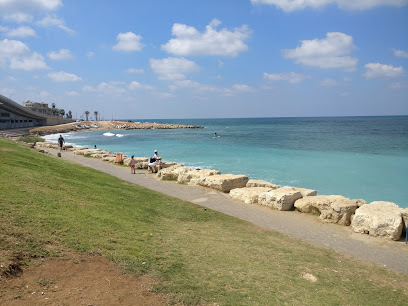
Hecht Park
Discover the serene beauty of Hecht Park in Haifa, a perfect escape with lush landscapes, playgrounds, and stunning Mediterranean views.
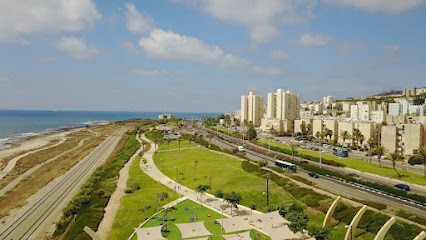
Nesher Park
Experience the natural beauty and tranquility of Nesher Park, a perfect escape for tourists seeking outdoor adventure and relaxation in Israel.
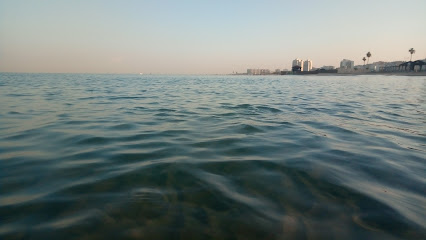
Dado Beach
Discover the beauty of Dado Beach, where golden sands meet the azure Mediterranean waters, offering relaxation and adventure in a vibrant atmosphere.
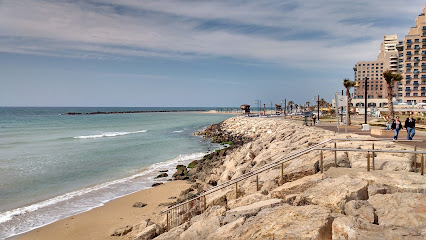
Stella Maris Monastery
Discover the serene beauty and rich history of the Stella Maris Monastery, a spiritual landmark overlooking the stunning Mediterranean in Haifa.
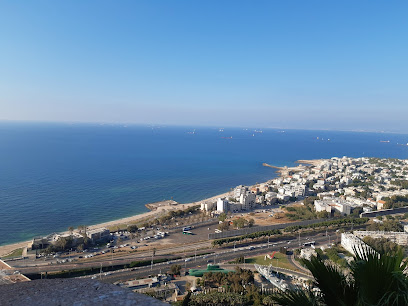
Ha’Em Garden
Explore the beauty and tranquility of Ha’Em Garden in Haifa, a lush retreat perfect for relaxation and family outings.
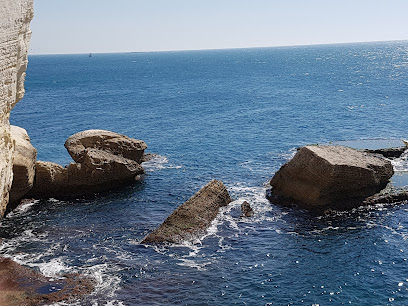
Bat Galim Beach
Experience the beauty and vibrancy of Bat Galim Beach in Haifa, a perfect destination for sun, sand, and sea adventures.
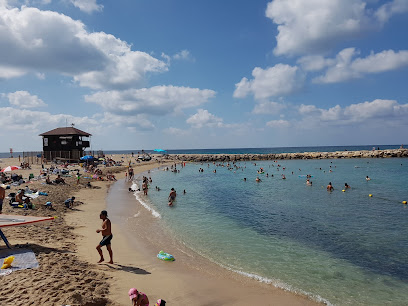
Bahá’í Gardens Haifa (Bahá’í Holy Place)
Explore the breathtaking Bahá'í Gardens in Haifa, a UNESCO World Heritage site combining stunning landscapes with spiritual significance.
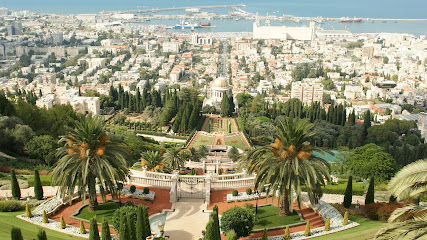
Hai-Bar Nature Reserve
Explore the breathtaking landscapes and diverse wildlife at Hai-Bar Nature Reserve, a must-visit nature preserve in Haifa, Israel.
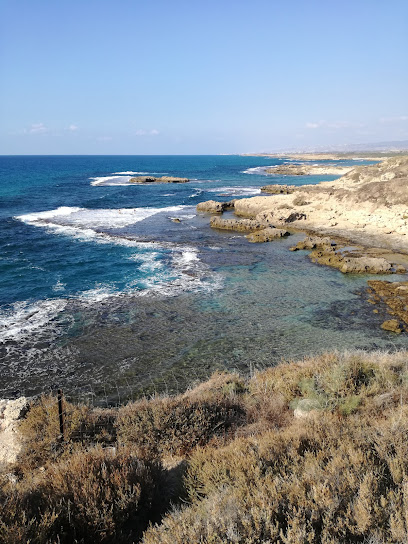
Student Beach
Experience the vibrant atmosphere and stunning beauty of Student Beach, a must-visit coastal paradise in Haifa, Israel.
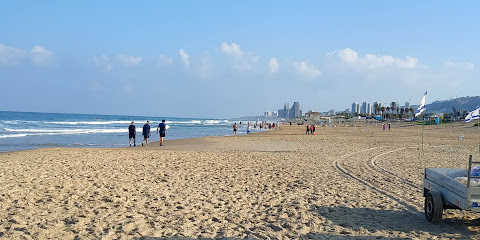
Sculptures Garden
Explore the Sculptures Garden in Haifa, where creativity meets tranquility amidst lush landscapes and breathtaking artworks.
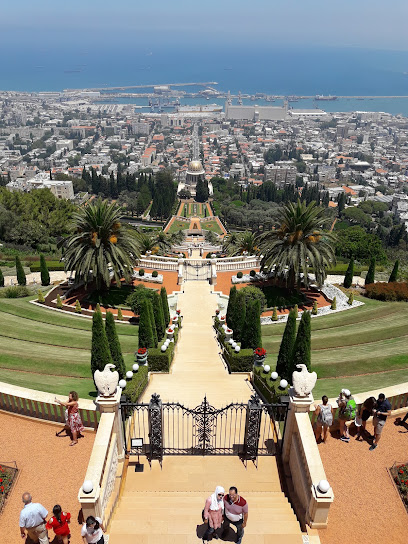
Dor Beach
Experience the tranquil beauty of Dor Beach, a hidden gem on Israel's Mediterranean coast, perfect for relaxation and adventure.
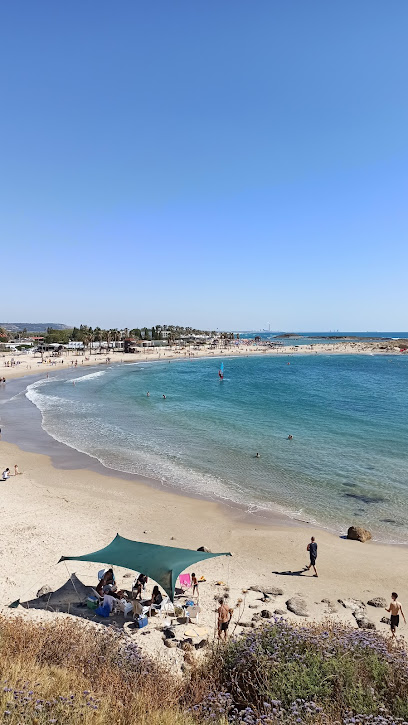
The Quiet Beach
Experience the serene beauty of The Quiet Beach in Israel, a perfect retreat for relaxation and seaside fun.
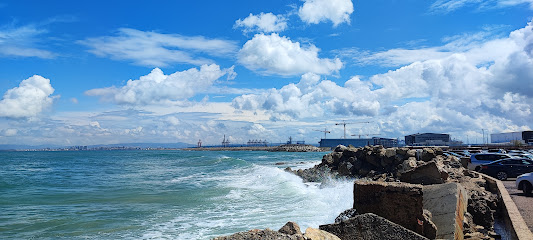
Akko Beach
Experience the breathtaking beauty of Akko Beach in Acre, Israel, where golden sands and rich history meet the Mediterranean Sea.
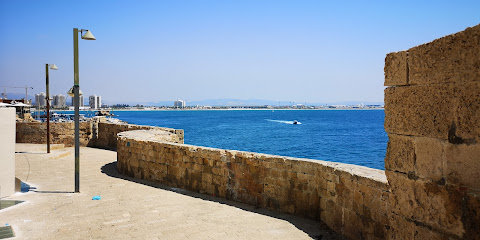
Unmissable attractions to see
Hecht Park
Discover Hecht Park in Haifa, a beautiful urban oasis perfect for relaxation, recreation, and breathtaking Mediterranean views.
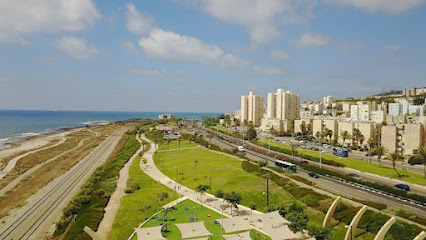
Nesher Park
Explore the natural beauty of Nesher Park, a picturesque haven in Israel, perfect for relaxation, picnics, and outdoor adventures.
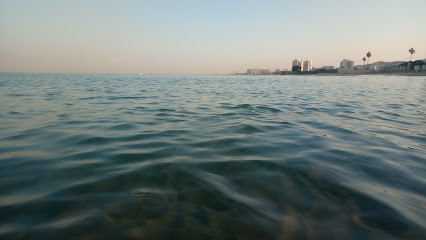
Habonim Beach Nature Reserve
Explore the enchanting Habonim Beach Nature Reserve, where stunning landscapes meet rich biodiversity along the Mediterranean coast of Israel.
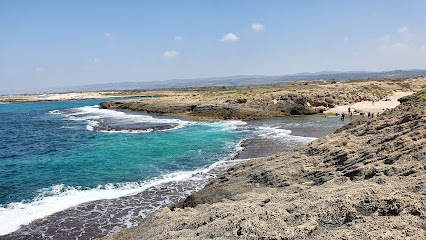
Dado Beach
Experience the vibrant atmosphere and stunning beauty of Dado Beach, a Mediterranean gem perfect for relaxation and adventure.
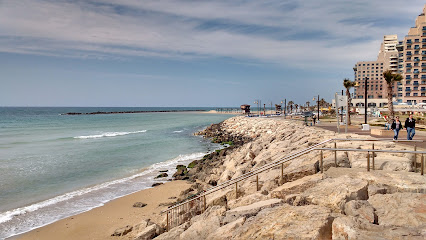
Ha’Em Garden
Explore Ha'Em Garden in Haifa, where vibrant flora meets serene landscapes, perfect for relaxation and stunning Mediterranean views.
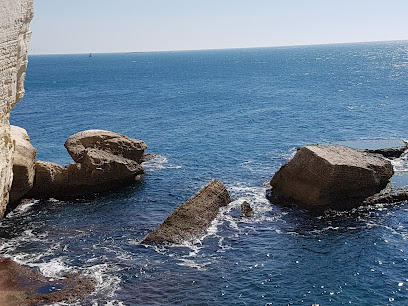
Bat Galim Beach
Experience the beauty of Bat Galim Beach in Haifa, where golden sands meet the sparkling Mediterranean waters in a vibrant coastal atmosphere.
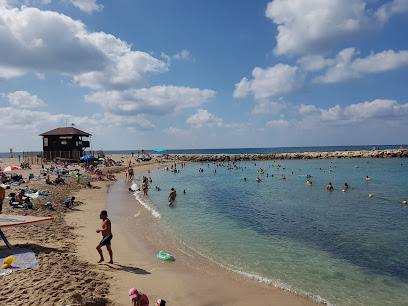
חוף הבתולה קרית ים
Discover the beauty and charm of Kiryat Yam Promenade, a stunning coastal walkway lined with cafes, recreation, and breathtaking Mediterranean views.
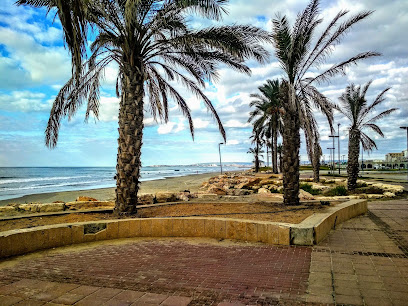
Almona Gardens
Discover the enchanting Almona Gardens in Julis, a serene oasis of beauty and tranquility perfect for relaxation and exploration.
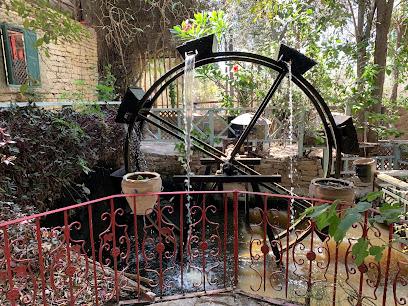
Hai-Bar Nature Reserve
Discover the natural beauty and wildlife of Israel at the Hai-Bar Nature Reserve in Haifa, a premier destination for nature enthusiasts and eco-tourists.
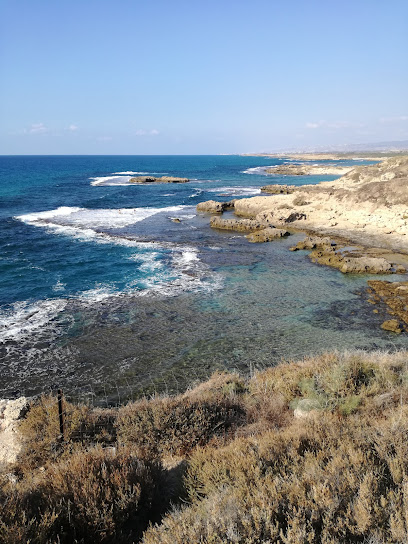
The Quiet Beach
Discover tranquility at The Quiet Beach in Israel, where soft sands and gentle waves create the perfect escape for relaxation and natural beauty.
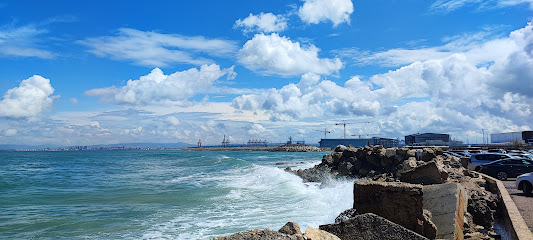
Kiryat- Haim Beach
Discover Kiryat-Haim Beach in Haifa, where golden sands meet azure waters for an unforgettable beach getaway.
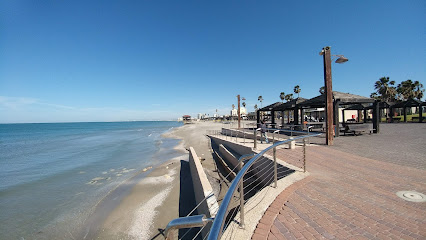
Park Shikmona
Explore the breathtaking views and tranquil beauty of Park Shikmona in Haifa, a perfect retreat for nature lovers and families in Israel.
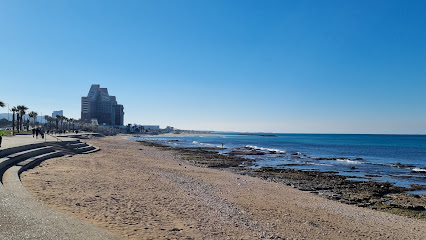
Tel Shikmona
Explore the ancient archaeological wonders of Tel Shikmona in Haifa, Israel, where history meets breathtaking Mediterranean views.
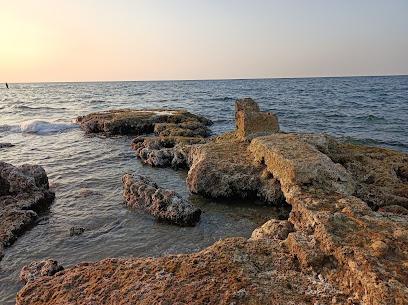
Bahá'í Gardens Haifa (Bahá’í Holy Place)
Explore the serene Bahá'í Gardens in Haifa, a UNESCO World Heritage site that blends stunning landscapes with spiritual significance.
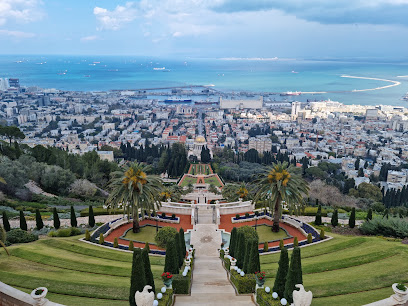
The Mizgaga Museum
Explore The Mizgaga Museum in Nahsholim for a deep dive into the rich cultural heritage and artistic treasures of the region, set by the stunning Carmel Beach.
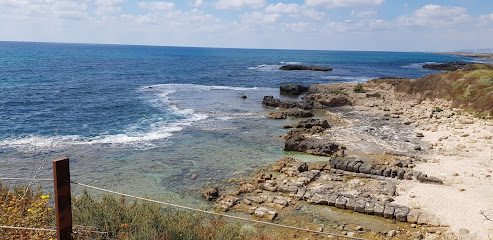
Essential places to dine
Vivino - רובע האיטלקי חיפה
Experience authentic Italian cuisine at Vivino in Haifa's historic Italian Quarter, where every dish tells a story.
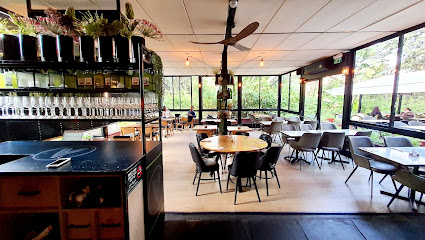
Eataliano Dalla Costa
Experience authentic Italian cuisine at Eataliano Dalla Costa in Haifa - where every meal is a celebration of flavor.
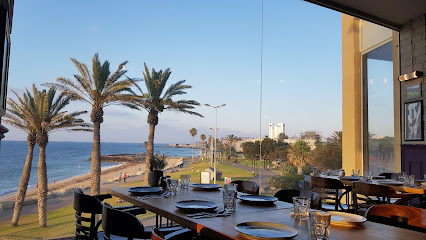
Fattoush
Experience the vibrant flavors of Lebanese and Mediterranean cuisine at Fattoush in Haifa - where every dish tells a story.
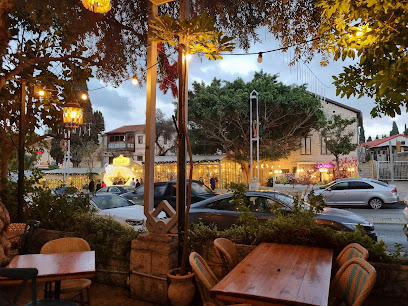
Maayan Habira
Discover authentic Israeli flavors at Maayan Habira in Haifa - a must-visit restaurant for food enthusiasts and travelers alike.
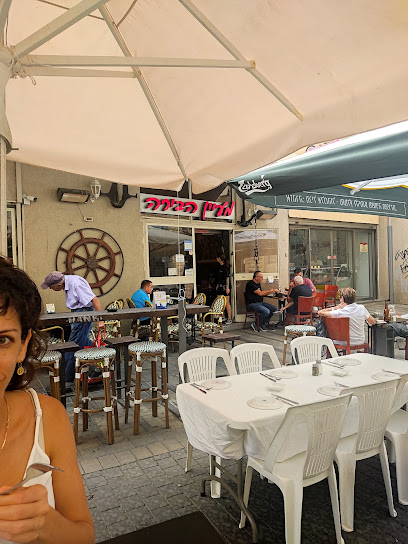
Shtroudl
Experience authentic Mediterranean flavors at Shtroudl in Haifa - where every meal is a celebration of taste and tradition.
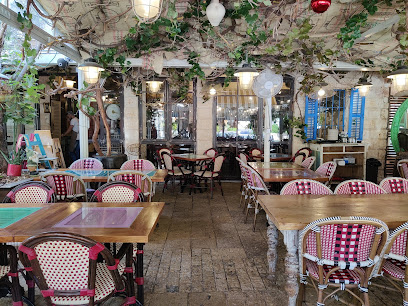
לוקס LUX - חיפה
Savor exquisite Mediterranean cuisine with stunning sea views at LUX - Haifa, where every meal is a culinary masterpiece.
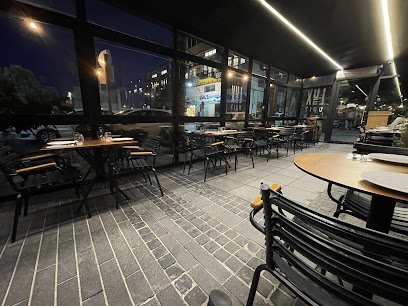
Shawatina
Discover the authentic flavors of Haifa at Shawatina – where tradition meets culinary innovation in a welcoming atmosphere.
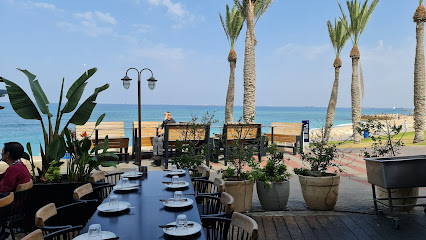
Camel
Discover Camel in Haifa – where delicious Israeli cuisine meets stunning Mediterranean views.
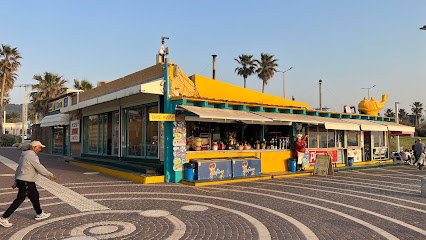
נירוונה פרש קיטשן - Nirvana By Fresh Kitchen
Discover culinary delights at Nirvana By Fresh Kitchen on Haifa's Dado Beach - where fresh flavors meet stunning sea views.
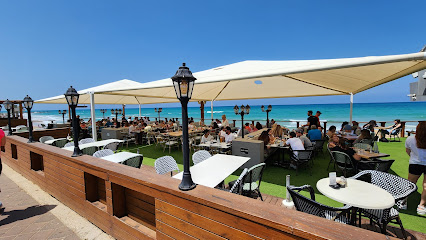
Shrimps House
Discover the taste of the sea at Shrimps House in Haifa - where fresh seafood meets a vibrant atmosphere.
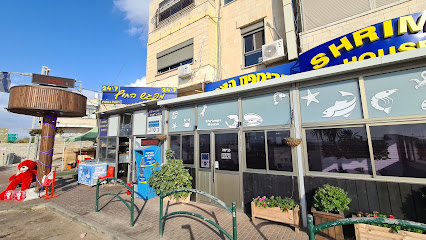
Kalamaris
Experience exquisite seafood dining at Kalamaris in Haifa – where Mediterranean flavors meet stunning coastal views.
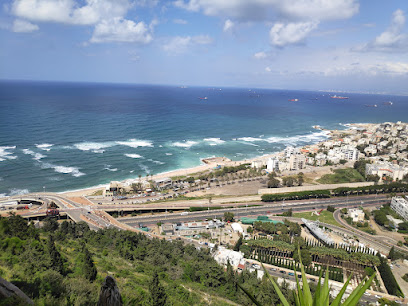
Garden Restaurant
Discover the exquisite flavors of Italy and the Middle East at Garden Restaurant in Haifa – a delightful culinary retreat amidst lush gardens.
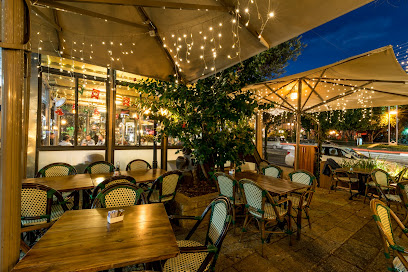
Venya Bistro
Discover culinary excellence at Venya Bistro in Haifa – where fresh ingredients meet innovative flavors.
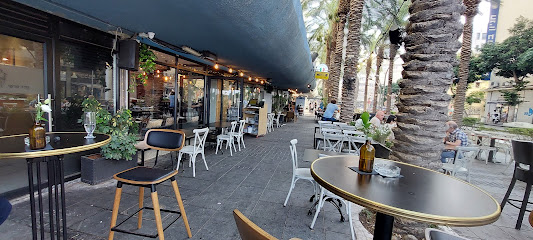
Ha-Namal 24
Experience exquisite French dining at Ha-Namal 24 in Haifa - where culinary artistry meets sophisticated ambiance.
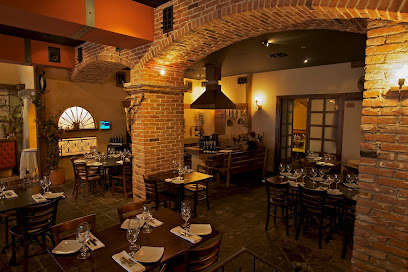
Shaltieli
Experience the finest kosher cuisine at Shaltieli in Haifa – where tradition meets modern culinary excellence.
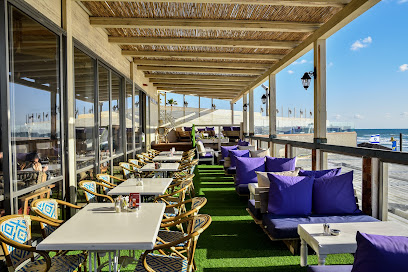
Markets, malls and hidden boutiques
Grand Canyon Haifa
Explore Grand Canyon Haifa: A premier shopping mall offering a diverse range of shops, dining, and entertainment in the heart of Haifa.
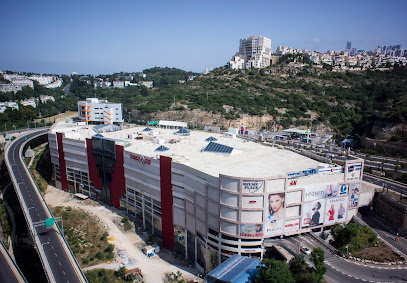
BIG Krayot
Discover the ultimate shopping experience at BIG Krayot in Haifa, where fashion, food, and fun come together for an unforgettable visit.
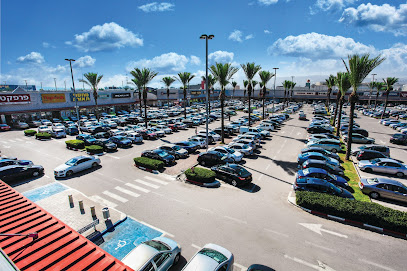
CineMall
Discover the ultimate shopping and entertainment experience at CineMall in Haifa, featuring amazing shops, diverse dining, and a stunning cinema.
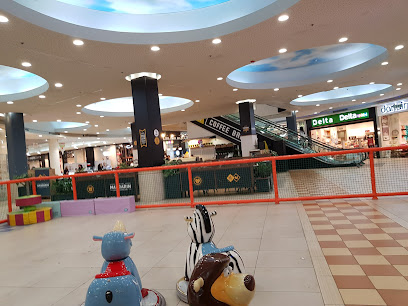
Azrieli Mall Haifa
Explore the vibrant Azrieli Mall Haifa, a shopping destination blending top brands, local boutiques, and diverse dining options, perfect for all visitors.
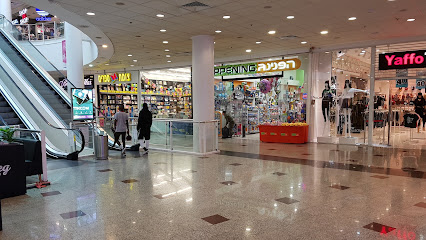
Horev Center
Explore the Horev Center in Haifa, a vibrant shopping mall with diverse retail options, dining experiences, and lively atmosphere that captures the essence of local culture.
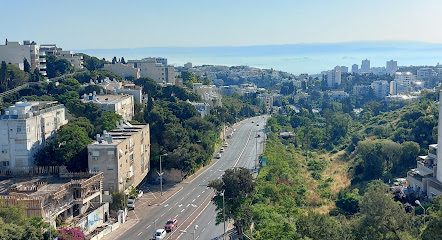
Castra Center
Experience shopping, dining, and entertainment at Castra Center in Haifa - the ultimate destination for tourists seeking a vibrant day out.
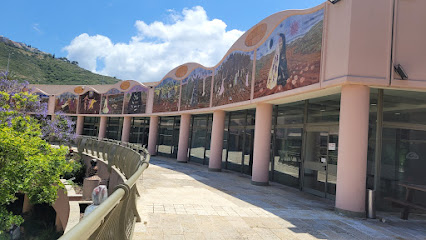
Bat Galim Beach
Discover the vibrant Bat Galim Beach in Haifa, where golden sands meet the Mediterranean and adventures await for every traveler.
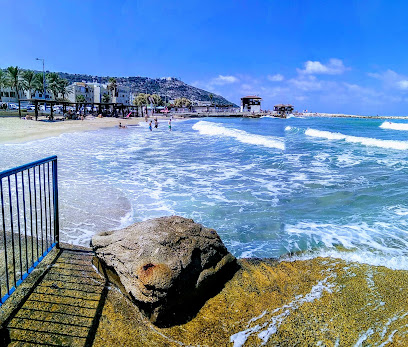
City Center - Outlet
Discover unbeatable deals and diverse shopping options at Haifa's City Center Outlet, a must-visit destination for any shopping enthusiast.
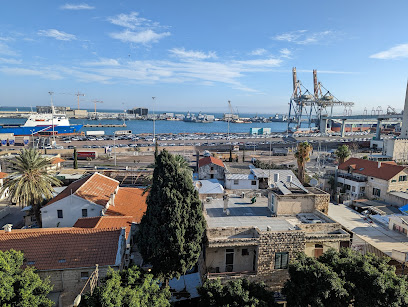
פנורמה
Discover the ultimate shopping experience at Panorama Shopping Mall in Haifa, where fashion meets flavor and fun for all ages awaits.
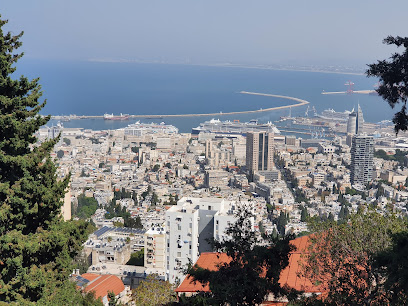
Urbanica wear and house
Discover the latest fashion trends and unique styles at Urbanica Wear and House in Haifa, a premier clothing destination for tourists and locals alike.
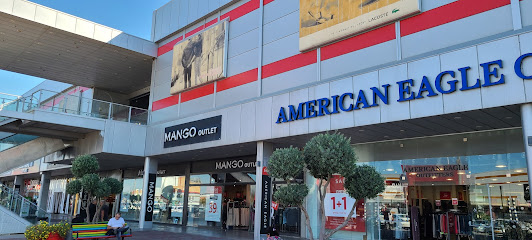
The Red Pirate
Discover a magical array of toys and games at The Red Pirate in Haifa, where imagination meets quality and fun for all ages.
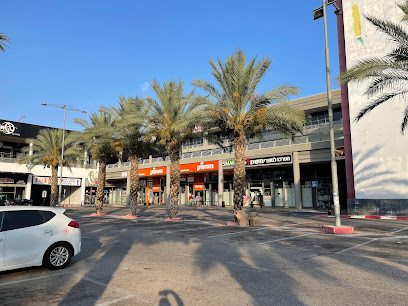
Trekomania
Explore the wilderness of Israel with Trekomania, the ultimate camping and outdoor sports store in Haifa, offering a wide range of gear and expert advice.
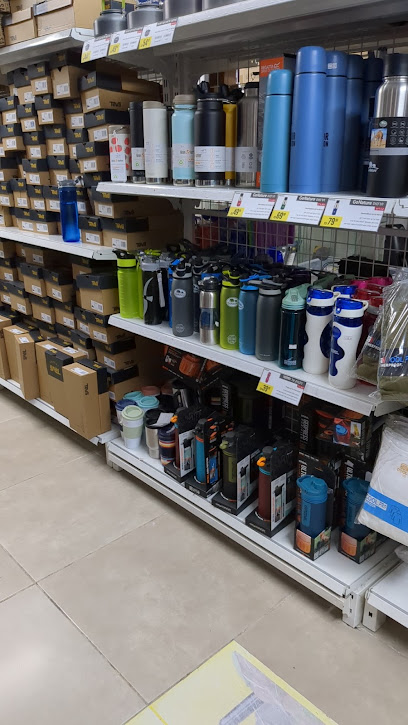
Midrahof
Experience the essence of Haifa at Midrahof, where every coffee is crafted with passion and every visit feels like home.
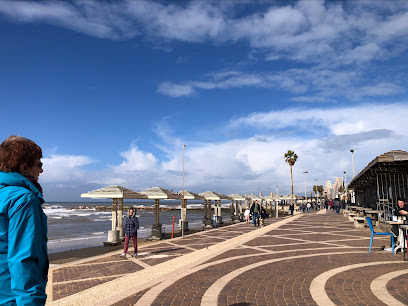
Mandarin Café
Discover the vibrant flavors of Haifa at Mandarin Café, a delightful spot for breakfast and coffee by the beach.
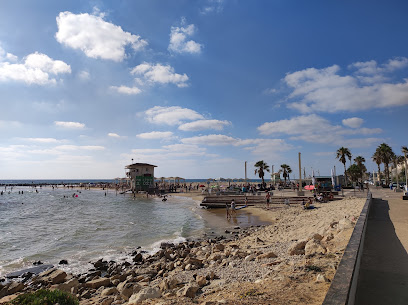
LaMetayel Outlet
Explore the great outdoors with top-notch camping gear and expert advice at LaMetayel Outlet in Haifa, Israel.
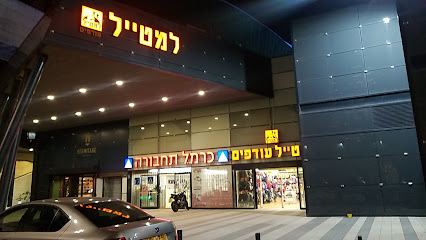
Essential bars & hidden hideouts
Iza Bar
Experience the vibrant nightlife of Haifa at Iza Bar, where delightful drinks and a lively atmosphere await every visitor.
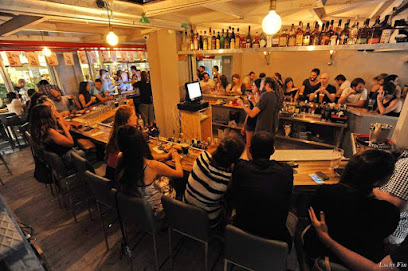
The Duke
Experience the vibrant atmosphere of The Duke in Haifa, where delicious cuisine meets a lively pub scene for an unforgettable night out.
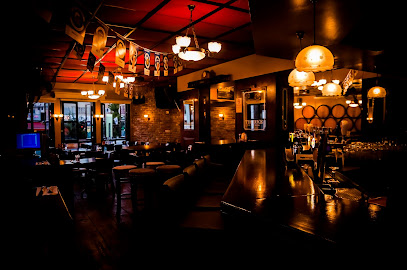
Camel
Discover the vibrant flavors of Israeli cuisine at Camel Restaurant in Haifa, where beachside dining meets culinary excellence.
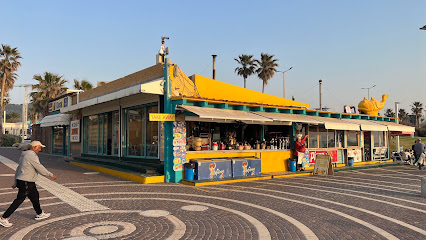
Nola Socks Pub
Discover the lively Nola Socks Pub in Haifa, a hotspot for fantastic food, live music, and an unforgettable nightlife experience.
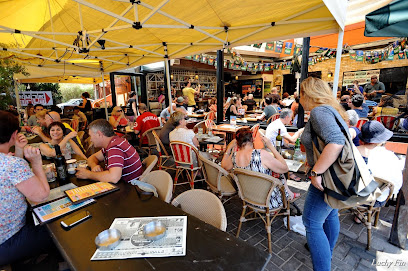
Beach Club Haifa
Experience the best of Mediterranean cuisine and cocktails at Beach Club Haifa, where every meal is paired with stunning sea views.
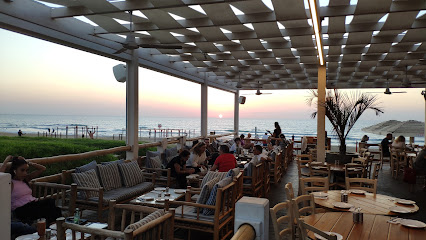
Fattoush Bar
Experience the vibrant nightlife of Haifa at Fattoush Bar, where delicious food meets live entertainment in a lively atmosphere.
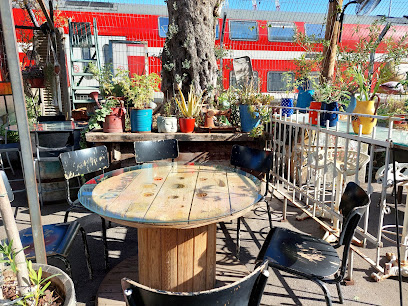
The Anchor pub פאב העוגן
Discover the lively atmosphere of The Anchor Pub in Haifa, where delicious food, refreshing drinks, and vibrant nightlife await.
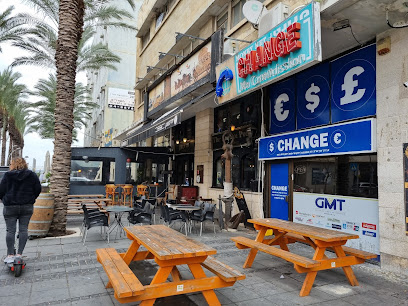
Pub Morgan
Discover the energetic nightlife of Haifa at Pub Morgan, where live music, laughter, and vibrant cocktails await you.
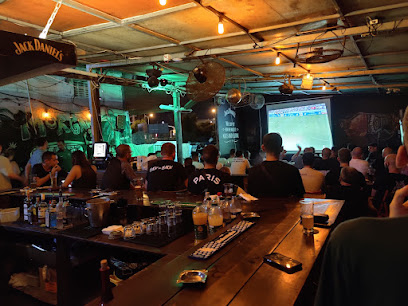
Rodeo Haifa
Experience the pulse of Haifa's nightlife at Rodeo Haifa, a vibrant pub known for its rock music and lively atmosphere.
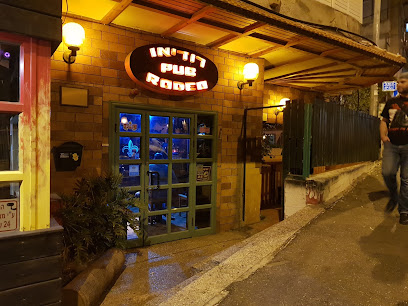
Bar Galim
Experience the vibrant nightlife in Haifa at Bar Galim, where affordable drinks and a welcoming atmosphere await every traveler.
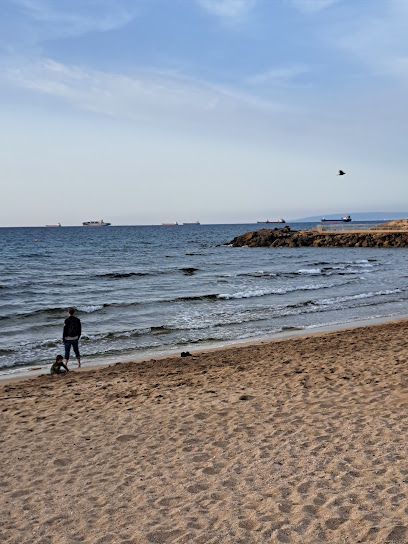
Eli's Pub-אליס פאב
Experience the vibrant nightlife of Haifa at Eli's Pub, where delicious food, handcrafted cocktails, and live music come together for an unforgettable evening.
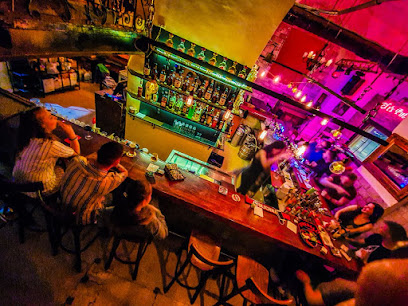
Urban Street Bar
Discover the vibrant nightlife of Haifa at Urban Street Bar, where great drinks and a lively atmosphere create unforgettable memories.
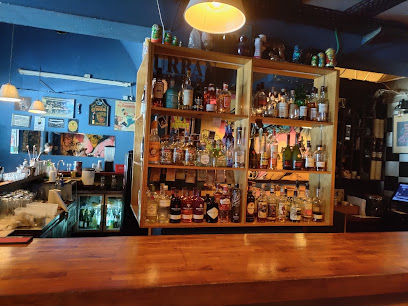
Vesper - Cocktail Bar
Experience the vibrant nightlife of Haifa at Vesper Cocktail Bar, where innovative cocktails and a cozy atmosphere await you.
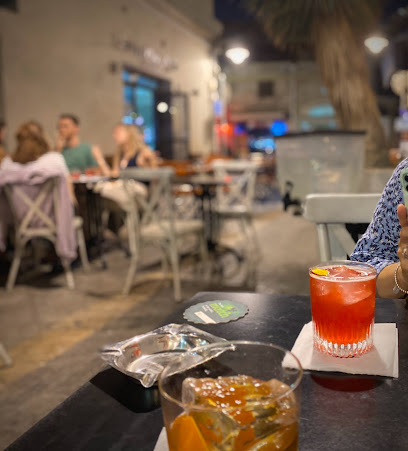
CHARLIEBAR
Discover the lively charm of CharlieBar in Haifa, where great craft beers and vibrant atmosphere meet for an unforgettable night out.
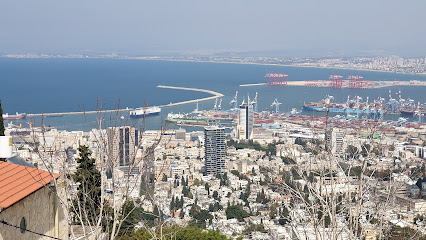
Local Phrases about Haifa Beaches
-
- Helloשָׁלוֹם
[Shalom] - Goodbyeלְהִתְרָאוֹת
[Lehitraot] - Yesכֵּן
[Ken] - Noלֹא
[Lo] - Please/You're welcomeבבקשה
[Bevakasha] - Thank youתוֹדָה
[Toda] - Excuse me/Sorryסְלִיחָה
[Slicha] - How are you?אֵיך אַתָּה?
[Eich Ata?] - Fine. And you?טוֹב. וַאֲתָה?
[Tov. Va'ata?] - Do you speak English?הֲאַתָּה מְדַבֵּר אַנְגְלִית?
[Ha'ata Medaber Anglit?] - I don't understandאֲנִי לֹא מֵבִין
[Ani Lo Mevin]
- Helloשָׁלוֹם
-
- I'd like to see the menu, pleaseאֲנִי רוֹצֶה לִרְאוֹת אֶת הַתַּפְרִיט, בְּבַקָּשָׁה
[Ani Rotseh Lirot et Hataprit, bevakasha] - I don't eat meatאֲנִי לֹא אוֹכֵל בָּשָׂר
[Ani Lo Ochel Basar] - Cheers!לְחַיִּים!
[Lechayim!] - I would like to pay, pleaseאֲנִי רוֹצֶה לְשַׁלֵם, בְּבַקָּשָׁה
[Ani Rotseh Leshalem, bevakasha]
- I'd like to see the menu, pleaseאֲנִי רוֹצֶה לִרְאוֹת אֶת הַתַּפְרִיט, בְּבַקָּשָׁה
-
- Help!עֶזְרָה!
[Ezra!] - Go away!לְךָ לְךָ!
[Lecha Lecha!] - Call the Police!תַּקְרִיא לַמִּשְׁטָרָה!
[Takria Lamishtara!] - Call a doctor!תַּקְרִיא לַרוֹפֵא!
[Takria Larofe!] - I'm lostאֲנִי אֲבוּדָה
[Ani Avuda] - I'm illאֲנִי חוֹלֶה
[Ani Choleh]
- Help!עֶזְרָה!
-
- I'd like to buy...אֲנִי רוֹצֶה לִקְנוֹת...
[Ani Rotseh Liknot...] - I'm just lookingאֲנִי רַק רוֹאֶה
[Ani Rak Roeh] - How much is it?כַּמָּה זֶה עוֹלֶה?
[Kama Ze Oleh?] - That's too expensiveזֶה יָקָר מְדַי
[Ze Yakar Medai] - Can you lower the price?הֲאַתָּה יְכוֹל לְהוֹרִיד אֶת הַמְחִיר?
[Ha'ata Yechol Lehored et Hamachir?]
- I'd like to buy...אֲנִי רוֹצֶה לִקְנוֹת...
-
- What time is it?מַה הַשָּׁעוֹן?
[Ma Hashaon?] - It's one o'clockהַשָּׁעָה אַחַת
[Hasha'a Achat] - Half past (10)חֲצִי (עֶשֶׂר)
[Chatzi (Eser)] - Morningבֹּקֶר
[Boker] - Afternoonאַחֲרֵי הַצָהֳרַיִם
[Acharai Hatzahorayim] - Eveningעֶרֶב
[Erev] - Yesterdayאֶתְמוֹל
[Etmol] - Todayהַיוֹם
[Hayom] - Tomorrowמָחָר
[Machar] - 1אֶחָד
[Echad] - 2שְׁתַּיִם
[Shetayim] - 3שָׁלוֹש
[Shalosh] - 4אַרְבָּע
[Arba] - 5חֲמִשָּׁה
[Chamisha] - 6שִׁשָּׁה
[Shisha] - 7שִׁבְעָה
[Shiv'a] - 8שְׁמוֹנֶה
[Shmoneh] - 9תִּשְׁעָה
[Tish'a] - 10עֶשֶׂר
[Eser]
- What time is it?מַה הַשָּׁעוֹן?
-
- Where's a/the...?אֵיפֹה הַ...
[Eifo Ha...] - What's the address?מַה הַכְּתוֹבֶת?
[Ma Haketovet?] - Can you show me (on the map)?הֲאַתָּה יְכוֹל לְהַרְאוֹת לִי (עַל הַמַפָּה)?
[Ha'ata Yechol Lehareot Li (al Hamafa)?] - When's the next (bus)?מָתַי הָאֹוטוֹבוּס הַבָּא?
[Matay Haotobus Haba?] - A ticket (to ....)כַּרְטִיס (לְ...)
[Kartis (le...)]
- Where's a/the...?אֵיפֹה הַ...
History of Haifa Beaches
-
Haifa's strategic location on the Mediterranean coast has made it an important port since antiquity. Archaeological evidence suggests that the area was inhabited as far back as the Late Bronze Age. The natural bay provided shelter for ancient mariners and traders, facilitating commerce and cultural exchanges between civilizations like the Phoenicians, Greeks, and Romans.
-
During the Crusader period, Haifa became a fortified city known for its defensive walls and strategic importance. The port was used by Crusader fleets, and remnants of Crusader architecture can still be found in the area. The Knights Templar played a significant role in the defense and administration of Haifa, ensuring its prominence during the 12th and 13th centuries.
-
Under Ottoman rule from the 16th to the early 20th century, Haifa saw gradual development and modernization. The construction of the Hejaz Railway, including a branch to Haifa, bolstered its status as a significant trade hub. The Ottomans invested in the port, improving its facilities and infrastructure, which attracted merchants and settlers from various regions.
-
During the British Mandate from 1920 to 1948, Haifa underwent substantial changes. The British expanded the port, making it one of the most important maritime gateways in the Eastern Mediterranean. The development of the Haifa refinery and the construction of the Technion, Israel's first technical university, marked this period as one of rapid industrial and educational progress.
-
Today, Haifa is renowned for its cultural diversity and coexistence. The city is a melting pot of Jewish, Muslim, Christian, Bahá'í, and Druze communities. The beaches of Haifa are not only popular for their natural beauty but also serve as a symbol of the city's multiculturalism. Events like the Haifa International Film Festival and various cultural festivals celebrate this unique blend of traditions.
-
Overlooking the beaches of Haifa are the Bahá'í Gardens, a UNESCO World Heritage Site. The terraces stretch from the base of Mount Carmel to its summit, encompassing the Shrine of the Báb. The gardens are not only a place of pilgrimage for Bahá'ís but also a major tourist attraction, reflecting the spiritual and cultural significance of the Bahá'í faith in Haifa.
Haifa Beaches Essentials
-
Haifa is well-connected by various modes of transportation. The nearest international airport is Ben Gurion Airport in Tel Aviv, approximately 90 kilometers away. From the airport, travelers can take a direct train to Haifa, which takes about an hour and a half. Alternatively, buses and taxis are available. For those driving, Haifa is accessible via Highway 2 from Tel Aviv or Highway 4 from the south.
-
Haifa has a well-developed public transportation system that includes buses, trains, and the Carmelit underground funicular. Buses operated by Egged are frequent and cover most areas of the city. The Israel Railways train services connect Haifa to other major cities in Israel. Taxis are also readily available, and ridesharing apps like Gett operate in the area. Renting a car is another option for those looking to explore the surrounding regions.
-
The official currency in Israel is the New Israeli Shekel (NIS or ILS). Credit cards are widely accepted in hotels, restaurants, and shops. It is advisable to carry some cash for smaller establishments and markets. ATMs are plentiful and can be found throughout Haifa, including at the beach areas.
-
Haifa is generally considered a safe destination for tourists. However, like any other city, it is advisable to take standard precautions. Avoid walking alone at night in unfamiliar areas and keep an eye on your belongings in crowded places. While Haifa does not have specific high-crime areas targeting tourists, it is always best to stay vigilant and aware of your surroundings.
-
In case of emergency, dial 100 for police, 101 for medical emergencies, and 102 for fire services. Haifa has several hospitals and medical centers, including the Rambam Health Care Campus. Pharmacies are widely available for minor health issues. It is recommended to have travel insurance that covers medical emergencies.
-
Fashion: Do dress modestly when visiting religious sites. Beachwear is acceptable on the beaches but should be covered when leaving the beach area. Religion: Do respect local customs and traditions. Avoid loud behavior near religious sites. Public Transport: Do be respectful and yield your seat to elderly passengers. Don't eat or drink on public transport. Greetings: Do greet people with a handshake. A simple 'Shalom' (hello) is a good way to start a conversation. Eating & Drinking: Do try local delicacies and accept food offerings graciously. Don't refuse hospitality, as it is considered impolite.
-
To experience Haifa Beaches like a local, visit the less touristy Bat Galim Beach, known for its windsurfing. Enjoy fresh seafood at local eateries along the beach promenades. Engage with locals, who are often friendly and willing to share tips about the best spots. Don't miss the Haifa Cable Car, which offers stunning views of the city and the Mediterranean Sea.
Trending Landmarks in Haifa Beaches
Nearby Cities to Haifa Beaches
-
Things To Do in Akko
-
Things To Do in Acre
-
Things To Do in Nahariya
-
Things To Do in Nazareth
-
Things To Do in Rosh HaNikra
-
Things To Do in Zikhron Ya'akov
-
Things To Do in Caesarea
-
Things To Do in Safed
-
Things To Do in Tiberias
-
Things To Do in Hadera
-
Things To Do in Tyre
-
Things To Do in Beit She'an
-
Things To Do in Netanya
-
Things To Do in Umm Qais
-
Things To Do in Ra'anana













